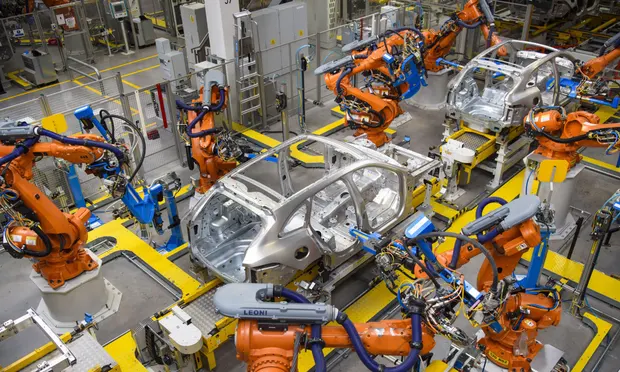Tata Group, the owner of Jaguar Land Rover, has announced it will invest £4bn to build an electric car battery gigafactory in the UK, in a major boost to the British automotive industry.
The factory is expected to be sited in Somerset and to bring 4,000 new jobs to the area. It will become one of Europe’s largest battery cell manufacturing sites when it starts production in 2026, said Tata Sons, the holding company behind the Indian conglomerate.
Tata had been locked in negotiations for nine months to secure state aid for the project, which would aim to produce 40 gigawatt hours (GWh) of batteries a year, enough to power hundreds of thousands of electric cars.
Tata had initially considered a site in Spain for the plant. “We have fought very hard for it,” Shapps told BBC Radio 4’s Today programme. “It is certainly the biggest UK car investment for 40 years. It is a big vote of confidence in the British economy that puts the UK in the fast lane for electric vehicle production.”
He said the factory could be producing half the electric vehicle batteries needed in the UK by 2030.
The Unite union welcomed the investment, but called for a long-term industrial strategy. Its general secretary, Sharon Graham, said: “The US and Europe have clear, proactive plans for jobs and investment. We cannot continually lag behind.
“As part of a comprehensive industrial strategy, the government must ensure the giga-factory is constructed with UK steel. There must also be reform of the sky-high energy business costs that are proving to be a serious risk to the future of manufacturing in the UK.”
Natarajan Chandrasekaran, chair of Tata Sons, said: “Our multibillion-pound investment will bring state-of-the-art technology to the country, helping to power the automotive sector’s transition to electric mobility, anchored by our own business, JLR.
“With this strategic investment, the Tata Group further strengthens its commitment to the UK, alongside our many companies operating here across technology, consumer, hospitality, steel, chemicals and automotive.”
The failure of Britishvolt, a gigafactory startup that collapsed after securing pledges of £100m in government support, has cast a shadow over the future of carmaking in Britain.
The two gigafactories will help the UK attract investment and new jobs in other parts of the battery supply chain, to replace tens of thousands of roles that are likely to disappear as production of petrol and diesel vehicles is wound down before the ban on new fossil fuel cars in 2035.
Mike Hawes, the chief executive of the Society of Motor Manufacturers and Traders trade body, described the move as “a shot in the arm for the UK automotive industry, our economy and British manufacturing jobs”.
He added: “It comes at a critical moment; with the global industry transitioning at pace to electrification, producing batteries in the UK is essential if we are to anchor wider vehicle production here for the long term.”
Rishi Sunak said: “Tata Group’s multi-billion-pound investment in a new battery factory in the UK is testament to the strength of our car manufacturing industry and its skilled workers.”
The prime minister added: “We can be incredibly proud that Britain has been chosen as home to Tata Group’s first gigafactory outside India, securing our place as one of the most attractive places to build electric vehicles.”


